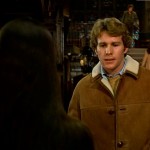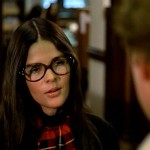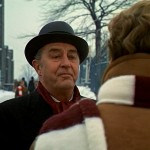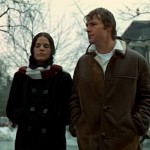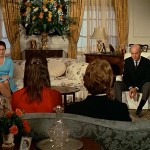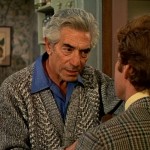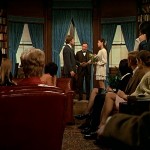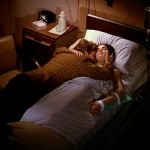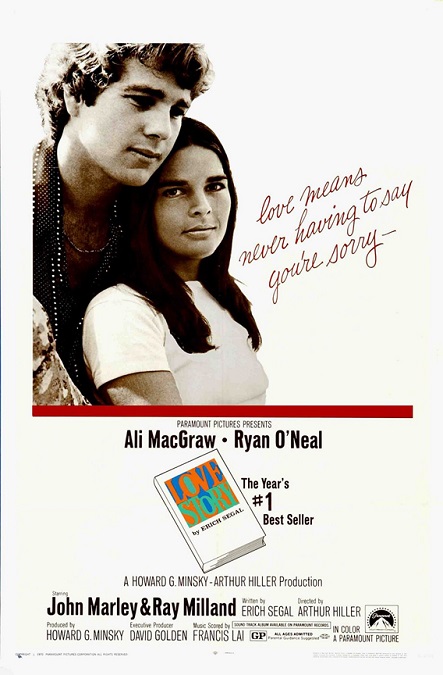
Love Story – 1970
OK, get out the razor blades. I’m ready to slit my wrists now. But seriously, this has got to be one of the most depressing movies of all time. Why? Because it is, before anything else, a weepy romance. Director, Arthur Hiller, did a wonderful job of getting us to fall in love with the characters before separating them by death, a boundary that cannot be denied. And he did it so effectively. The story was wonderfully told and brilliantly acted.
Ryan O’Neal plays Oliver Barrett IV, and right in the opening scene, he is shown sitting alone on a bench in the dead of winter, snow all around him. We are immediately told that he is in love with a woman and that she has died. Then we are transported back to the beginning of their story. The love of his life is Jenny Cavalleri, played by Ali McGraw.
We see the two meet as young college students, he at Harvard and she at Radcliffe. We see them go out on their first date. We see love begin to bloom. We see them as their relationship grows and strengthens. We see their good times and their bad. We see them marry. We see them fighting and making up. We see their relationship grow deeper and more meaningful. And then we see Jenny fall sick with leukemia and get weaker and weaker before she finally dies in his arms.
And that’s it. That’s the entire movie. It was simple and unforced. It was honest and passionate. But that is why it was so effective. It didn’t feel contrived or manic. It was organic and natural. The on-screen chemistry between O’Neal and McGraw was so good that I believed their love. The script, written by Erich Segal, showed two real people who were perfect for each other. He, and the actors, made us, the audience, take joy in their relationship.
And then he dashed all our hopes against the rocks. And what made it worse was that we saw it coming. We knew what was going to happen and we got hurt anyway. Not only was the happiness of love celebrated in a beautiful way, the tragedy of death was handled with care and respect. It was weepy without being sappy or melodramatic. O’Neal and McGraw both did a fantastic job.
And I can’t write a review for Love Story without mentioning the iconic theme song. The film’s score was written by Francis Lai, and though the film was nominated for 7 Academy Awards, Best Music – Original Score was the only category in which it won. The music was both romantic and sad at the same time. It had a classical style which touched on the character of Jenny, who was studying to be a concert pianist. The theme song, entitled Where Do I Begin, was later popularized by singer Andy Williams.
The movie had a popular tagline which I happen to disagree with. Those who know the film will always remember the line, “Love means never having to say you’re sorry,” spoken by Jenny after a fight with her husband. That’s bunk. In my humble opinion, they should have said, “Love means being ready to say ‘I forgive you’.” You see the distinction? But that’s just me.
There was another aspect to the movie which I though was nearly as interesting as the romance. There was a big difference between the classes which was portrayed by the only two other significant characters in the film. Oliver’s father, Oliver Barrett III, played by Ray Milland, was a stereotypical rich man, looking down his nose at anybody who was not rich. He eventually disowned his son because of his marriage to a lower class girl. Jenny’s father, Phil Cavallari, played by John Marley, was the exact opposite. He was kind and accepting of his son-in-law. And you can’t tell me that wasn’t a little bit of social commentary. Rich equals bad and poor equals good? But I get it. It was really there to demonstrate one of the obstacles their love overcame… before she died. Waaaaaah!!!
